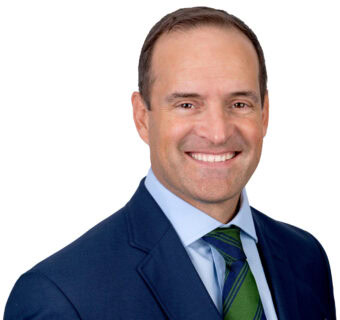Cayman Islands: Expanded Beneficial Ownership Reporting Regime Now in Force - Your Top Questions Answered
In this publication, Appleby’s Regulatory Group answer the top questions on the REVISED beneficial ownership regime in the Cayman Islands.




What are the new obligations?
The Beneficial Ownership Transparency Act, 2023 (BOT Act) and the Beneficial Ownership Transparency Regulations came into effect on 31 July 2024. Under the BOT Act, the beneficial ownership provisions formerly housed in multiple legislation and regulations applicable to companies, limited liability companies and limited liability partnerships have all been consolidated into the BOT Act.
The BOT Act has expanded the scope of the beneficial ownership regime to also apply to foundation companies, exempted limited partnerships and limited partnerships (together with companies, limited liability companies and limited liability partnerships “legal persons”). Trusts and registered foreign companies continue to be out of scope.
What exemptions have been removed?
In addition to the expansion of the entities within the scope of the beneficial ownership regime, a range of the formerly available exemptions have been removed. Accordingly, unless a legal person falls within one of the categories below, it will be required to identify and provide prescribed details of its registrable beneficial owners to its corporate services provider (CSP) for entry onto a beneficial ownership register:
- A legal person listed, or a subsidiary of an entity listed on the Cayman Islands Stock Exchange or other approved stock exchange. Such legal persons will be required to provide details of the listed status (name and jurisdiction) to its CSP.
- A legal person licensed by CIMA under a Cayman regulatory law. Such legal persons will need to provide written confirmation of the exemption to their CSPs.
- A Mutual Fund or Private Fund registered with the Cayman Islands Monetary Authority. Such funds will need to provide details of a licensed fund administrator or other contact person licensed or registered under a regulatory law to provide beneficial ownership details to the competent authority within 24 hours upon request.
Who is a “beneficial owner”?
The new definition of beneficial owner under the BOT Act has been amended to align more closely with the definition used in the Cayman Islands Anti-Money Laundering Regulations (AML Regulations) in order to improve consistency across these regimes. However, the beneficial ownership percentage for ownership or control will remain at 25% or more under the BOT Act whereas the threshold for the AML Regulations is 10% or more.
Additional beneficial owner data fields will be required including address for service, nationality and the nature in which the beneficial owner owns or exercises control over the legal person.
What must a legal person do next?
Legal persons that were previously out of scope (exempted limited partnerships and limited partnerships) or exempt (such as general partners, blocker entities, special purpose vehicles and entities registered under the Securities Investment Business Act or Virtual Assets (Service Providers) Act) will need to analyze the application of the BOT Act and if required, identify and provide details of their registrable beneficial owners to their CSPs.
Legal persons that were already in scope under the old framework will continue to have beneficial ownership reporting requirements and should review and assess whether any revisions or additional information is required to be provided to their CSPs due to the increased data required and the new definition of beneficial owner contained in the BOT Act.
CIMA registered Mutual Funds and Private Funds will need to engage a contact person for providing beneficial ownership details to the competent authority, or alternatively they may opt to provide details of their registrable beneficial owners to their CSPs.
Although the revised regime has come into operation, CSPs on behalf of legal persons will have until early 2025 to deliver the relevant information to the relevant Registrar. The Ministry of Financial Services and Commerce (Ministry) has advised CSPs to suspend the filing of beneficial ownership information under the old framework until the Ministry advises that they should recommence under the new framework. Enforcement relating to the new requirements of the BOT Act is not expected to commence until early 2025.
Who has access to the register?
There is no express provision contained in the BOT Act for the general public to have access to beneficial ownership registers. The related beneficial ownership guidance published by the Ministry contains a full list of the government bodies permitted to access all beneficial ownership registers. Examples include, CIMA, the Financial Reporting Authority and the Tax Information Authority. The BOT Act also envisages that beneficial ownership registers will be accessible to persons that can demonstrate a legitimate interest. This is expected to be introduced at a later date in further regulations.
What are the consequences for non-compliance with these obligations?
If a legal person fails to take all reasonable steps to identify a beneficial owner and subsequently to obtain the required particulars of its beneficial owners and written confirmation of its legal person category, they may be liable to an initial administrative fine of $5,000 (and ongoing monthly fines for continued non-compliance with the requirement contained in the BOT Act).
Appleby can assist
Should you require further information in respect of the requirements of the BOT Act, classification of Cayman Islands entities or identification of their beneficial owners, please contact your usual Appleby attorney or any of the contacts listed below.

























